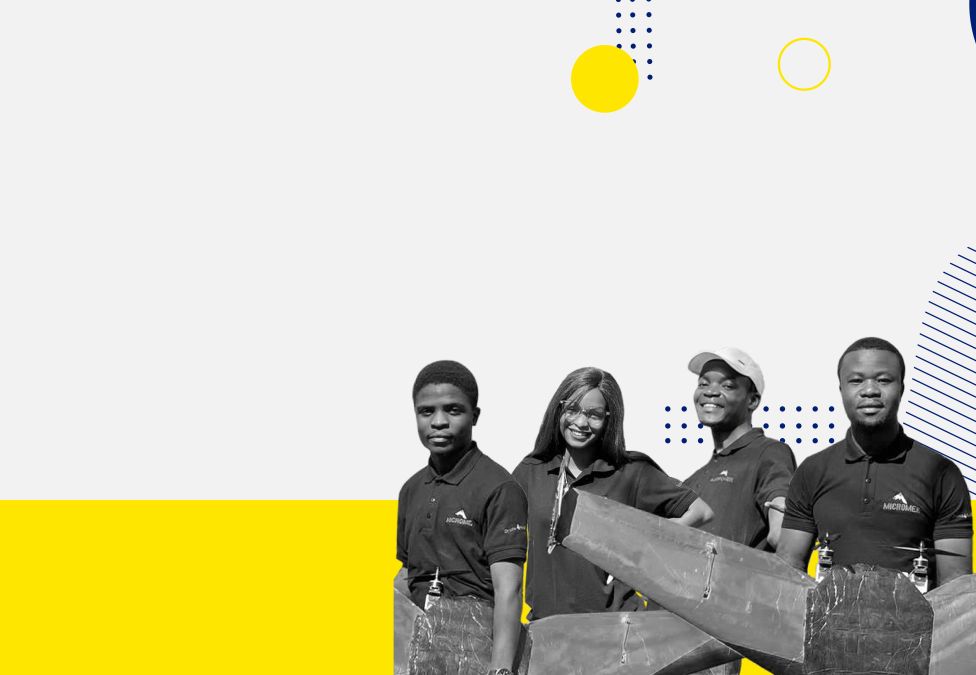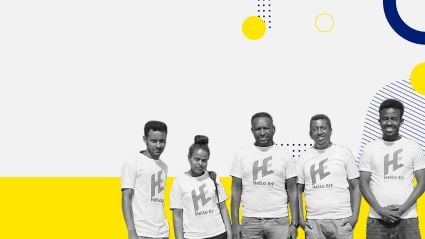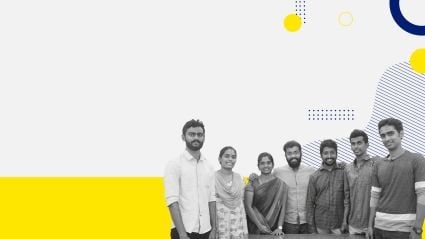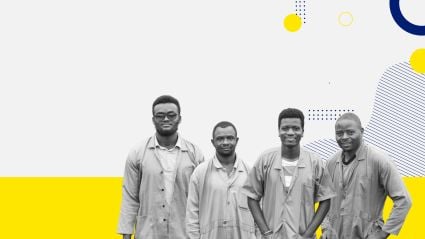
Pictured (Left to right): Tresfore Gawani, Katie Kethiwe Mtambo, Aaron Seyenda, and Dumisani Kaliati.
Milken Institute: Tell us about your team?
Dumisani Kaliati: Our team consists of a diverse group of talented individuals who are passionate about drone technology, drone data analysis, and food security. We came from a background of makers, where we believe in using our hands and creative minds to solve challenges surrounding our communities using a do-it-yourself approach. We have combined our passion for FlyingThings and locally building drone technology to monitor farmlands, and plant health by collecting aerial sensory data and analyzing it to provide insights to farmers that can help achieve precision and farming efficiency, hence improving yield.
What inspired you to participate in the Milken-Motsepe Prize in AgriTech? In addition to competing for the $1 million grand prize, what do you hope to gain from this experience?
We hope to connect with like-minded entrepreneurs and creatives, to learn from their expertise and experience developing tech solutions for agriculture, in different parts of the world. We hope to gain insights from our mentors on how to best integrate our locally built drone technology to monitor crop health across Africa. Through the Milken-Motsepe Prize in AgriTech, we plan to create long-lasting partnerships with the Institute, our mentors, and peers.
How will your concept increase economic value to farmers in Africa?
MicroMek FlyingThings is locally developing low-cost autonomous fixed wing drones made from 3D printed parts and recycled materials for delivery of medicine in health and for remote sensing and aerial data collection in agriculture. Our drones are equipped with multispectral camera sensors for crop health monitoring, through the collection and analysis of aerial image data of crops in a farm. The analyzed data output is generated into maps that provide insights to famers that help them achieve precision farming and efficiency, hence helping improve the overall yield. Using drones to monitor farmlands automates the traditional crop scouting methods that involves the farmer manually walking the field to detect anomalies, hence saving time and labor resource for the particular farmer.
What sets you apart from other teams in this competition?
In 2017, the Government of Malawi, in partnership with UNICEF, established a humanitarian drone testing corridor in Kasungu. The dedicated drone corridor provided a sandbox for local entrepreneurs like ourselves to innovate, develop, and test drone technologies in the areas of health, agriculture, and connectivity. Malawi’s economy is predominately agriculture. The sector employs the majority of Malawi’s population. However, farm productivity is still below its capacity due to reliance on traditional farming methods.
The country also faces frequent climate shocks like cyclones, flooding, and disaster. Our team is using our local drone building and drone operations skills to innovate solutions that can help local farmers achieve farming precision and efficiency through remote sensing and monitoring of crop health.











